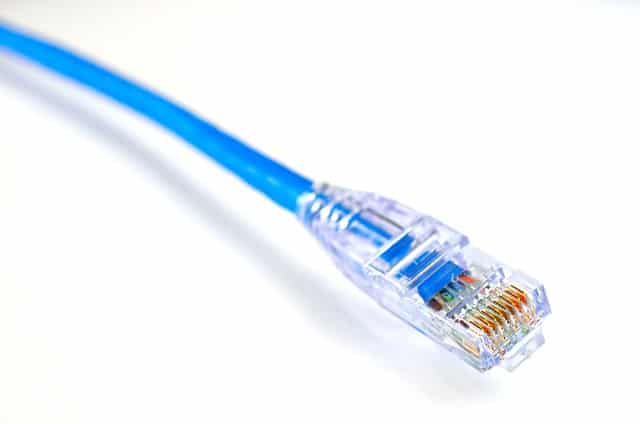First, any compliant Ethernet cable will work with AyrMesh Products. We recommend using Cat5E cables, because they are the most likely to be compliant. However, we also recommend using Shielded, UV-resistant cables outdoors.
Ethernet Cables
An Ethernet cable consists of four twisted pairs of wires – eight wires total, and should comply with the appropriate ANSI/TIA 568 standard for the category. The problem is that there are a LOT of non-compliant Ethernet cables out there, labeled as Cat6, Cat8, or even Cat7 (which doesn’t even exist). The difference in these categories is the rate of the twist in the wires: higher speeds require higher twist rates. However, if you’re manufacturing Ethernet cables, it’s much easier (cheaper) to use lighter-gauge wires as you increase the twist rate.
Wire Size
The problem is that two of the wire pairs are used for data, and two are used to power the AyrMesh device. If the wires are smaller than 24 gauge, they may not be able to carry enough current to successfully power the device (especially the AyrMesh Hub2x2). For cables under 25′ it doesn’t seem to matter much, but it’s crucially important for any longer cable.
Pure Copper
Some manufacturers don’t use pure copper wire, which has the same effect as too-small wires. You’ll see advertisements for aluminum or “CCA” (copper-clad aluminum), which should be avoided for any Ethernet cable longer than 15′ or so. We do not recommend their use at all.
UV-Resistance
The other important point for Ethernet cables is, when you’re running them outdoors (e.g. to an AyrMesh outdoor product), make sure that the sheath is UV-resistant. If not, the sheath will strip off in a year or two, leaving the wires exposed, and the insulation on the wires will fall off soon after.
Shielding
We also recommend using shielded cables – cables with an extra layer of either metallic braid or foil, marked “STP” (Shielded Twisted Pair) or “FTP” (Foil Twisted Pair”). Nearby electrical discharge (lightning, arc welders, some pumps, etc.) can induce noise on an unshielded Ethernet cable, causing data to slow or even stop.
We sell a variety of good Ethernet cables as a service for our customers.

